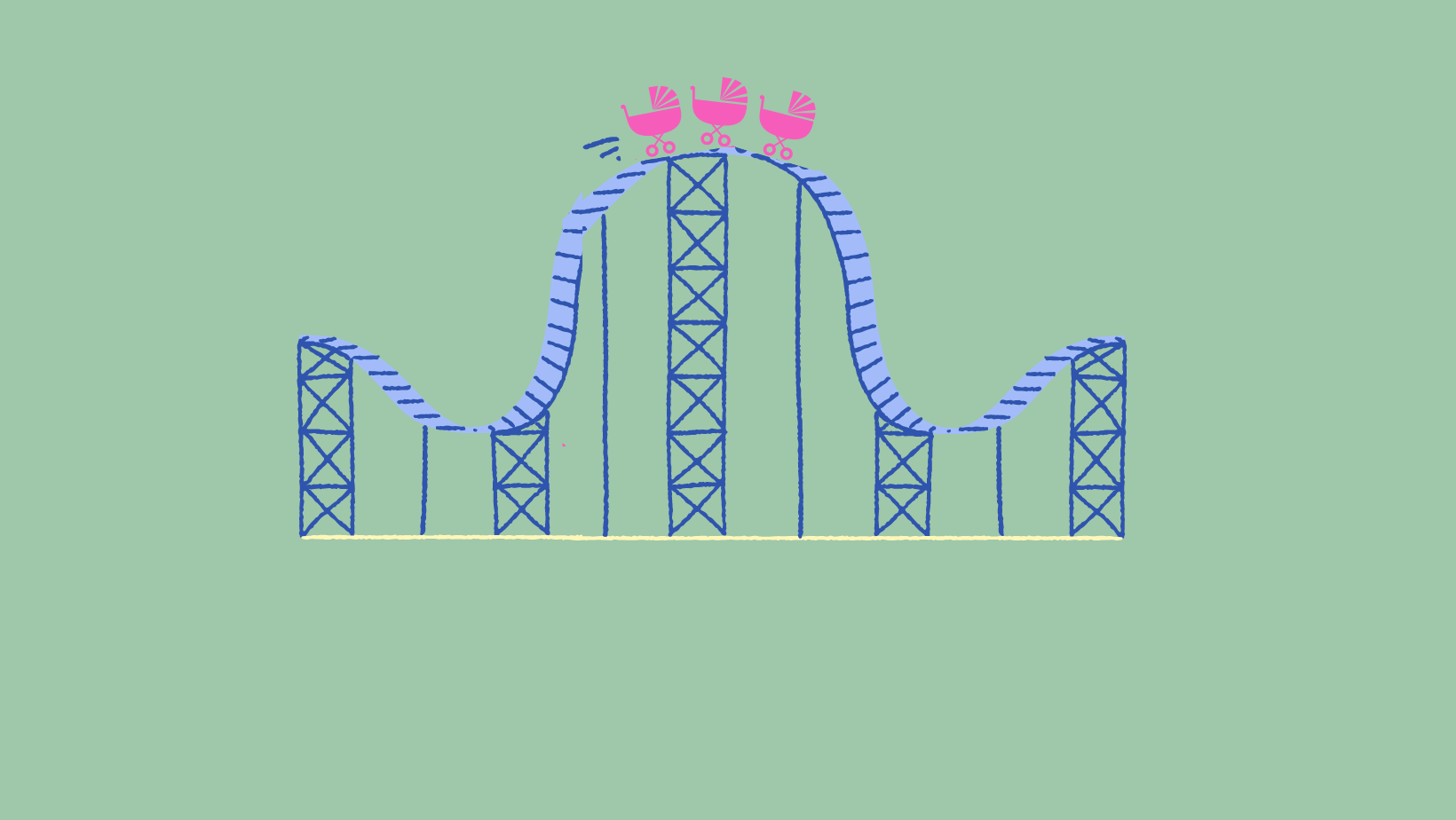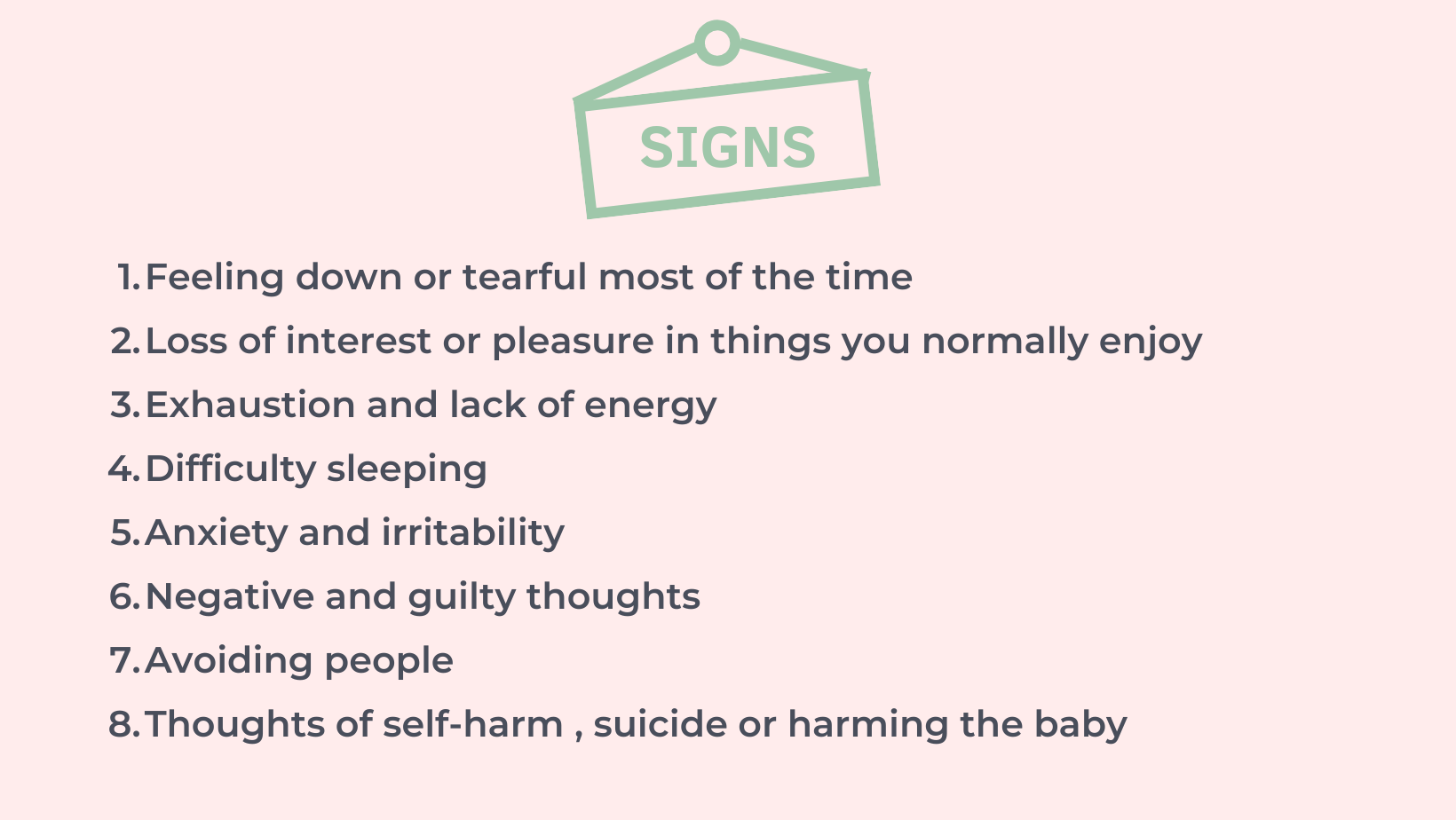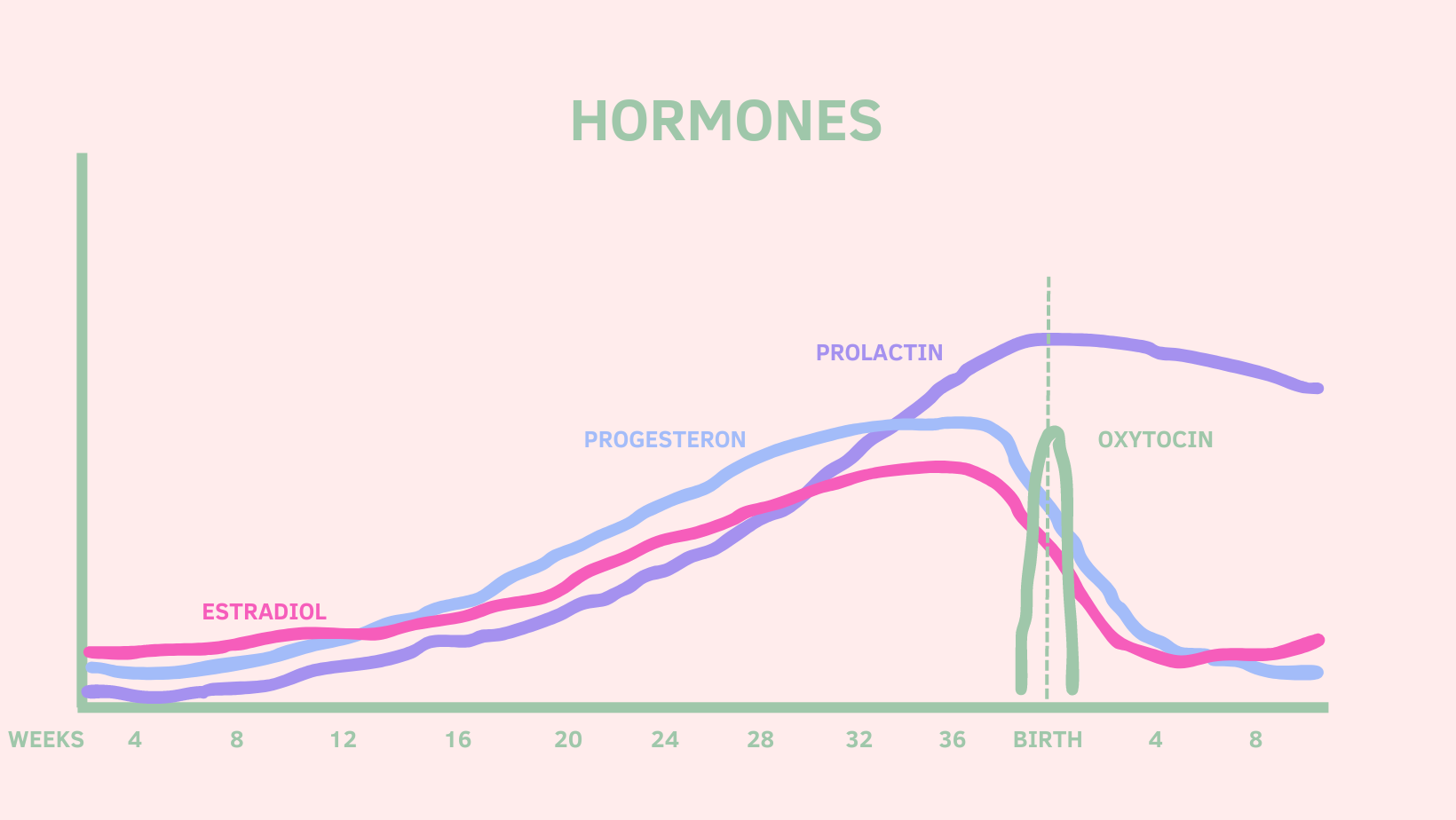Navigating the Emotional Rollercoaster After Birth

I wanted to publish this post last week, since it was maternal mental health week. But life got in the way of it, so I decided to enjoy life, family and friends, and send it out today. It feels fitting, since Sunday was Mother's Day, and I got to reflect on the last months since I became a mother.
I remembered the middle of the night feedings when I tried to stay awake, longing for sleep while hearing my husband breath heavily, feeling sore from all the carrying, and lonely while my baby peacefully drifts into sleep again.
But I also realized I am a lucky lady. I made new friends and reconnected with old ones. These people made me feel strong, loved, and able. I got plenty of resources, tips, hilariously relatable mom accounts and most importantly I have a safe space to ask “is this normal?”.
Welcoming a new life into the world is often portrayed as a time of joy and celebration. However, for many new mothers, the postpartum period (the time after birth) can be fraught with unexpected emotions and challenges, including postpartum depression.
What is Postpartum Depression (PPD)?
Postpartum depression is a type of mood disorder that affects mothers following childbirth.
Many women feel tearful, sad, or irritable after birth. And these feelings, the "baby blues", is completely normal. For most women though, these feelings disappear within the first 10 -14 days after giving birth. Unlike the "baby blues," PPD is characterized by more severe and persistent symptoms that can significantly impact a mother's ability to function and care for herself and her baby.
PPD doesn't just mean you feel bad-tempered or weepy - it's a serious mental illness that's more common than you think.
In fact, it's THE most common pregnancy complication, affecting 10-15 percent of women, not including the unreported cases that don't talk about it. As many as half of PPD in new mothers go undiagnosed because of conflict in privacy and not wanting to disclose to close family members. There is also a stigma around new mothers in that disclosure may lead to abandonment and fear of lack of support. Yet, support is the best treatment for women experiencing PPD.
Signs and Symptoms
The symptoms of postpartum depression can vary from person to person but may include:

The symptoms of PPD are similar to those of depression and can be so severe that they make caring for the baby and oneself very difficult. As I mentioned earlier symptoms usually appear in the first few weeks after birth, but can begin as early as the first year.
For a small number of women, symptoms may also include hearing voices or holding unusual beliefs.
Causes
The exact causes of postpartum depression are not fully understood, but it is believed to result from a combination of biological, psychological, and social factors. Hormonal fluctuations, sleep deprivation, past history of depression or anxiety, inadequate social support, and stressful life events can all increase the risk of developing PPD.
Research suggests that the sudden, dramatic drop in sex hormones after childbirth has a strong impact on mood and may be the reason for low mood in the postpartum period.

During pregnancy, estrogen and progesterone levels are at an all-time high. After giving birth, they drop steeply. This is similar to just before your period, only much more pronounced. I wrote about the changes of hormones during the menstrual cycle, and how women can use them as their superpower in this blogpost.
Estrogen and progesterone levels increase many times over during pregnancy, so do other hormones such as oxytocin and prolactin. Oxytocin is the "cuddle hormone" and Prolactin facilitates breastfeeding.
Did you know?
While most hormones return to pre-pregnancy levels within one to two weeks, prolactin levels remain elevated in women who are breastfeeding, so does oxytocin.
Prolactin and oxytocin are known to have a mood-enhancing effect, allowing the conclusion that breastfeeding can protect against PPD and contribute to a faster recovery.
I know that not all women can, and understand that not all women want to breastfeed, but science shows that those who suffer from PPD are less likely to do so.
Besides the reproductive hormones that change after delivery: thyroid hormone levels also drop, which can also contribute to low mood.
Risk Factors
Although we don't yet know the exact cause of PPD, it's likely that many factors play a role, including biological, psychological, social and now baby-related. Because ALL women experience these hormonal changes postpartum, but not all women experience PPD.
However, those who are more sensitive to these hormonal changes appear to have individual risk factors, such as a genetic predisposition or a history of mental illness. Women are also at increased risk
- if they have a history or family history of depression or mental health disorders
- if they have recently experienced stressful life events
- if they have experienced domestic violence or abuse, or
- if they lack support from family and friends.
Lifestyle and Habits
New Body
After giving birth, the newborn isn't the only "new" thing" a woman has to deal with. A mom needs to get used to her body again, or experience pain during breastfeeding.
She may want to start exercising to get back in shape, or want to lose the last few pounds, but is advised agains it. So she has to "deal" with the wobbly belly, pain while moving, or multiple times a day while feeding her baby. These factors can result in low mood and increase the risk for PPD.
Nutrition
Nutrition is usually not particularly good either, not to mention sleep. It's often difficult to find time or energy for physical fitness, as well as other aspects of lifestyle. For example, the lack of "me-time".
Relationships
The birth of a baby can also affect relationships with your partner, family and friends. However, social support is exactly what new mothers need and is possibly the most important protective factor against PPD.
Conclusion
Postpartum depression is a common and treatable condition that affects many new mothers. PPD is NOT reflective of who mothers are as a parent or means that moms don't love their child enough or didn't want their child enough.
The transition to motherhood is a hard time for mental health.
Unfortunately, the media, especially social media, can give a false impression and unrealistic expectation of what motherhood should look like, which puts a lot of pressure on new moms (and dads).
New moms can love their babies with every fiber of their being and still have PPD.
You CAN get better, and help is out there. Perinatal mental health disorders are temporary and treatable.
By raising awareness, reducing stigma, and providing support and resources, we can help mothers navigate the challenges of PPD and work towards recovery and emotional wellness. Remember, you are not alone, and help is available. Reach out, speak up, and take the first step towards healing.
And don't forget that sharing is caring... for you and others.
